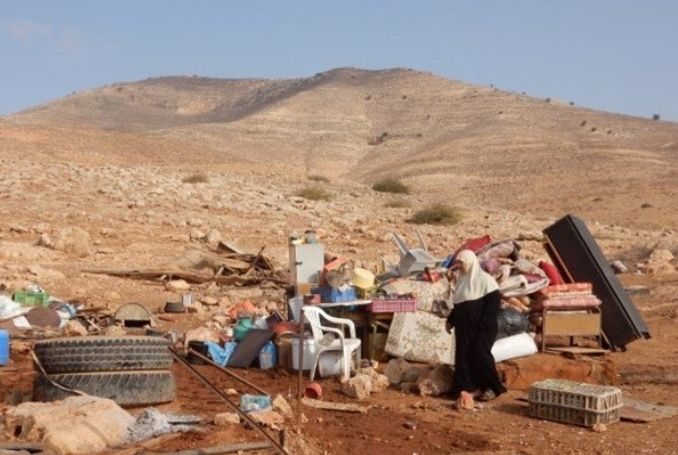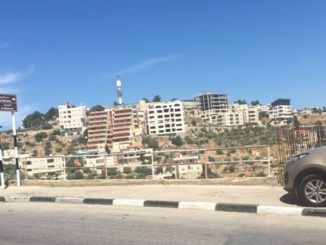
Israeli forces today destroyed pipelines that were supplying the northern Jordan Valley village of Bardala with irrigation water.
Ziad Sawafta, deputy mayor of Bardala village council, told WAFA that Israeli forces regularly destroy the pipes supplying water for irrigation in Bardala.
Sawafta added that the village already suffers from water shortage due to Israel’s refusal to provide it with more than 100 cubic meters of water per hour when the needed amount is 240 cubic meters.
If the plan gives the entire west side of the Jordan Valley to Israel: What would a proposed Palestinian state on the West Bank do for water? How would it engage in commerce if everything had to pass through Israel?
— Jack A Sobel (@jackasobel) January 29, 2020
Israeli actions harm the agricultural crops, which constitute the village’s main source of income.
Entire communities in the West Bank either have no access to water or have had their water supply reduced almost by half.
“The water crisis (in Palestine) is related directly to the more general political context of Israel’s occupation: apartheid, illegal Jewish settlements, siege, and war,” writes Ramzy Baroud, Palestinian journalist, and editor of The Palestine Chronicle.
THREAD: Facts about how Israel uses #water as a weapon against Palestinians:
The Jordan Valley is 927 sq miles of the most fertile land in #Palestine – 30% of West Bank. If Palestinians had access to these lands, it would increase their agricultural yield by $1.6B annually pic.twitter.com/noSLhSXLQ4
— Water Justice in Palestine (@WaterPalestine) September 17, 2019
“Indeed, total water control was one of the first policies enacted by Israel after the establishment of the military regime following the occupation of East Jerusalem, the West Bank, and Gaza Strip in June 1967. Israel’s discriminatory policies – its uses and abuses of Palestinian water resources – can be described as ‘water apartheid’,” Baroud added.
(Palestine Chronicle, WAFA, Social Media)







